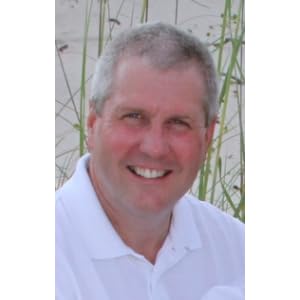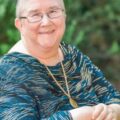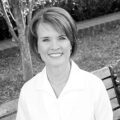 By Trisha Bleau Smith
By Trisha Bleau Smith
T4JYM: I have enjoyed reading your works. The most recent book I had the pleasure of reading and reviewing was A Different Kind of Laughter. Where did the idea for the book come from? Where do you generally draw your ideas for writing from?
AC: A Different Kind of Laughter came out of a personal season of depression. It wasn’t a bad depression, just one of those times when everything seemed to be made of the routine and the schedule and the mundane, and I felt like I had “lost my laughter.” Since I tell people every Sunday that the answers to their questions are in the Bible, I decided to take my own advice. I looked in Philippians – the “joy” book – and Psalms, where all the singing is, and just couldn’t find what I was looking for. But as I searched for words like “joy” and “peace,” the last few hours of Jesus’ teaching kept popping up on my computer Bible. Before long, I was looking at a deeper kind of joy and peace than I had seen in a long time. And that’s where this book was born. It wasn’t laughter like you’ll hear at the end of a good joke … it was a different kind of laughter.
T4JYM: How much editing was involved? Who helps you with your editing? How many times did you have to re-edit your works?
AC: I have some good friends who read my stuff first, and they give me honest feedback. Of course, the folks at Kregel Publishing have professional editors who work with manuscripts. We probably re-wrote the book five times before it was done.
T4JYM: How many publishers did you send your book to before it was picked up? Was it rejected by any publishers? What kind of feedback did you receive from them?
AC: My first book, The Search for God’s Own Heart, was turned down by almost 50 publishers before Kregel took a shot with it. When Kregel wanted to do the second one, I didn’t even submit it to another publisher. Why wake up from a good dream?
T4JYM: Who have been your biggest influences in life? Who have been your biggest influences in your life as a writer?
AC: Everything comes back to Jesus. His teachings and the story of his life, death and resurrection have changed everything about me. And that’s why the people around me who are the biggest influencers are deeply committed followers of Christ. My parents had me in church constantly. My wife has a very strong faith. A great number of men and women have shown me how to grow deeper in Christ.
As a writer, I’m like a sponge around water when I read people like Max Lucado, John Ortberg, and Chuck Swindoll. I also had a number of people in the newspaper industry who influenced me. It probably doesn’t make me sound like a deep theologian, but Dave Barry is my favorite columnist.
T4JYM: How has this book been received by the general public? Has there been positive feedback? Any negative feedback?
AC: The folks who like this book the most seem to be people going through a tough time. People dealing with chemotherapy, for instance, are looking for joy in a pretty tough place. They relate to the pain and suffering Jesus had, and perhaps they see, for the first time, that he still talked about blessings, joy and peace in the midst of that pain.
T4JYM: What are your next plans for writing? Do you plan to do any more books along the same lines as this book? Will you move on to new writing?
AC: We’ve got a new book out just this week (August, 2003). It’s called A Power Beyond Belief, and it’s my favorite. The biblical basis for the book is Acts, a book filled with miracles. Finding the stories for this book was a blast, and one of them was a miracle in and of itself. In June of 2001, before the radical changes in security came via Sept. 11, a boy from Augusta, Georgia was President of the United States for one day. It was a Make-A-Wish miracle, and easily the best story I’ve ever run across. It was also perfect for my book, because it was a heart transplant that got Daniel under the care of Make-A-Wish. You can come to the book of Acts looking for miracles, too, but you’ve got to have a heart transplant of your own, first. It’s a great illustration, but for a while, I didn’t think it would be usable. The White House had helped with the big day back in 2001, but the deal had been secrecy. As long as no one knew about a 10-year-old President, Washington wouldn’t be hit with a deluge of kids wanting to do the same thing. So the story was off-limits. I got several people praying with me to have the story released, and it finally was. It’s the first story in the book, and I hope it makes it into the hands of preachers all across America.
T4JYM: What is generally your target audience? Do you write specifically to adults or have you written other books targeted at other audiences? How do you decide on what audience to focus your writing on?
AC: I just write. I’m a pastor, so I’ve always got 6-year-olds in the same audience as 96-year-olds. Stories are irresistible for all of us, so I’ve learned to tell a lot of them.
T4JYM: How do you find time to write? Life is busy and time management is hard to do sometimes. When do you do your best writing and where?
AC: I spent 10 years as a journalist, which taught me how to write quickly. After all, when you’re on deadline, you can either write with speed or find another job. My book chapters also double as sermons, which means I often get two purposes out of the same time commitment. But to tell you the truth, the books didn’t happen until I made some pretty early-morning commitments. I usually get up by 5 a.m., but 4 a.m. isn’t unusual when the writing has to be done.
T4JYM: Are you ONLY a writer – meaning, is writing your full time job or do you have a job that you do full time and write on the side?
AC: I’m a husband, a dad, and a pastor. Three full-time jobs is enough. Writing is a bonus.
T4JYM: What training do you have in writing? Did you take any writing courses in college to obtain the skills you have currently?
AC: I graduated from college with a journalism degree, and took a job as a sports writer. It was a great place to work, for it never felt like work. Ironically, one of the projects I liked the least – I had to edit some pretty dry stories – won a Pulitzer Prize. You never know…
T4JYM: What advice would you give to someone who wants to pursue a career in writing? What advice would you give to someone interested in publishing their works?
AC: If you want to write, you’ve got to read. Read everything you can, and when you really like something, try to analyze why the writing was so good. There really is a craft to it. One day a professor pointed out a passage in Mark Twain’s Tom Sawyer. It was a scene where some fighting had broken out, and Tom and Huck were running for their lives. All of the sentences were short. And choppy. And fast. The end result was that the passage was read very quickly, as if even the reader was running. It stunned me to realize that Twain had done that on purpose, manipulating words to cause an affect. Once you figure out how someone else has done it, you can model that, and improve on it.
Publishing is like any dream. If you’ve got a dream, give it a shot. Don’t lie on your deathbed wondering what could have happened if you had just taken a chance on what you really wanted to do. I had a friend who once said, “Oh, I could never have something published.” I asked him, “What have you submitted?” He said, “I’ve never submitted anything.” And neither one of us had to say a thing… but odds are, his lack of submitting was directly related to his low chances of being published!





Be the first to comment